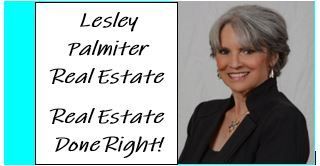Zillow's Analysis of the Strength of the Boston Housing Market
Zillow's Analysis of the Strength of the Boston Housing Market

In a recent Zillow article, the Boston area housing market is estimated to fare well against other U.S. cities. Despite its remaining high housing cost, in an analysis of 50 markets, Boston ranks 16th with properties continuing to gain in value.
Read on.
How Does Boston's Housing Market Rank Among Hottest In U.S.?
Find out how Boston measures up against the rest of the country in cost and inventory.
Scott Souza,Patch Staff
Posted Wed, Jan 15, 2025
Under Zillow's formula, Boston home values increased 4.7 percent to an average value of $694,494, and are expected to grow another 2.1 percent in 2025. (Jenna Fisher/Patch)
MASSACHUSETTS — How hot is the real estate market in the Bay State's largest metro area?
In a new analysis, the online real estate marketplace Zillow ranked the 50 largest U.S. metro areas based on the company’s home value growth projections, how quickly homes sell, job growth, new construction permits, and expected growth in owner-occupied housing.
Buffalo, New York, is projected to be the hottest housing market this year, the first time it has held the title in back-to-back years, Zillow said. Boston ranks in 16th place.
Under Zillow's formula, Boston home values increased 4.7 percent to an average value of $694,494, and are expected to grow another 2.1 percent in 2025.
One major problem facing homebuyers looking to purchase in Boston — to the surprise of no one who has explored such a move — is inventory. Zillow's forecast said that Boston's inventory of homes available for purchase has dropped 45.8 percent since the pre-COVID years of 2018 and 2019.
Behind Buffalo, the hottest markets are Indianapolis; Providence, Rhode Island; Hartford, Connecticut; Philadelphia; St. Louis; Charlotte, North Carolina; Kansas City, Missouri; Richmond, Virginia; and Salt Lake City, respectively.
Zillow said its 2024 forecast that Buffalo would have the hottest real estate market in 2024 was proven out in its market heat index. The city has the most new jobs per new homes permitted, Zillow said, noting that new jobs often mean new residents, which raises competition and drives up prices unless builders can match the additional demand.
Affordability is a top consideration for buyers. Zillow said lower-than-average home prices and rent costs in Buffalo, Indianapolis, St. Louis and Kansas City, Missouri, pushed those cities to the top 10.
Buyers consider "relative affordability," too. Providence, Rhode Island; Hartford, Connecticut; and Philadelphia are close, more affordable alternatives to expensive Northeast cities such as New York or Boston, Zillow said.
Among the fastest-growing markets is Virginia Beach, which leapfrogged over 23 other markets to the No. 13 spot in this year’s forecast. Memphis, Tennessee, fell the farthest, dropping 30 places as new housing permits eclipsed low job growth.
The western half of the country was shut out of the top 10 in 2024, but this year, Salt Lake City came in at No. 10. San Diego was the only other Western metro in the top 20.
Cities at the bottom of the ranking are New Orleans; San Francisco; San Jose, California; Portland, Oregon; Austin, Texas; Minneapolis; Denver; Memphis, Tennessee; Milwaukee; and New York City, respectively.





